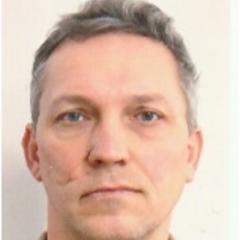A proposal for updating Australia's teaching benchmarks and introduction of a national skills passport
Abstract
In August 2018 a workshop at UQ by ANCATL (Australian National Committee for Archaeology Teaching and Learning) discussed two initiatives to improve the teaching of archaeology in Australia, namely updating the national teaching benchmark and introduction of a skills passport.
a) In 2008 a team led by Wendy Beck published 'By Degrees', a teaching benchmark for archaeology that established a set of skills and areas of knowledge that an Honours/Master graduate in archaeology could be expected to know. Degree programs around Australia, including UQ have used this document to design and amend their curricula in the decade since its publication and it still is ahead of anything seen in other humanities and social science disciplines. The workshop discussed some rephrasing of benchmark statements and clear delineation of the expectations of graduates at AQF (Australian Qualification Framework) Level 7 (Bachelor Degree) and 8/9 (Honours/Master Degrees).
By Degrees: https://www.australianarchaeologicalassociation.com.au/wp-content/uploads/2012/05/By-Degrees-Benchmarking-Archaeology-Degrees-in-Austrlaian-Universities.pdf
b) The committee also proposed launching a skills passport based on an expanded version of the skills passport originally developed in the UK by David Connolly at the BAJR: http://www.archaeologyskills.co.uk/. The system is a highly structured means of recording skills during a person's career in any archaeological project.
In this seminar I will present the background to and recommendations of the committee for discussion and input. This is part of a national consultation effort to gauge opinion concerning the proposals before they are developed further.
About the Presenters
Associate Professor Andrew Fairbairn, School of Social Science, The University of Queensland.
About Archaeology Working Papers
The Working Papers in Archaeology seminar series provides a forum for dissemination of archaeological research and ideas amongst UQ archaeology students and staff. All students are invited to attend the series and postgraduate students, from honours upwards, are invited to present their research. The aim is to provide opportunities for students, staff and those from outside UQ, to present and discuss their work in an informal environment. It is hoped that anyone interested in current archaeological directions, both within and outside the School and University, will be able to attend and contribute to the series.
2025 Upcoming Sessions
| Date | Presenter |
|---|---|
| 8th August | Nicholas Hadnutt and Lincoln Morse |
| 15th August | Jane McMahon |
| 22nd August | Martin Gibbs |
| 29th August | Karen Cooke |
| 5th September | Shoshanna Grounds |
| 12th September | Meg Walker |
| 19th September | Marc Cheeseman |
| 26th September | Ladislav Nejman |

